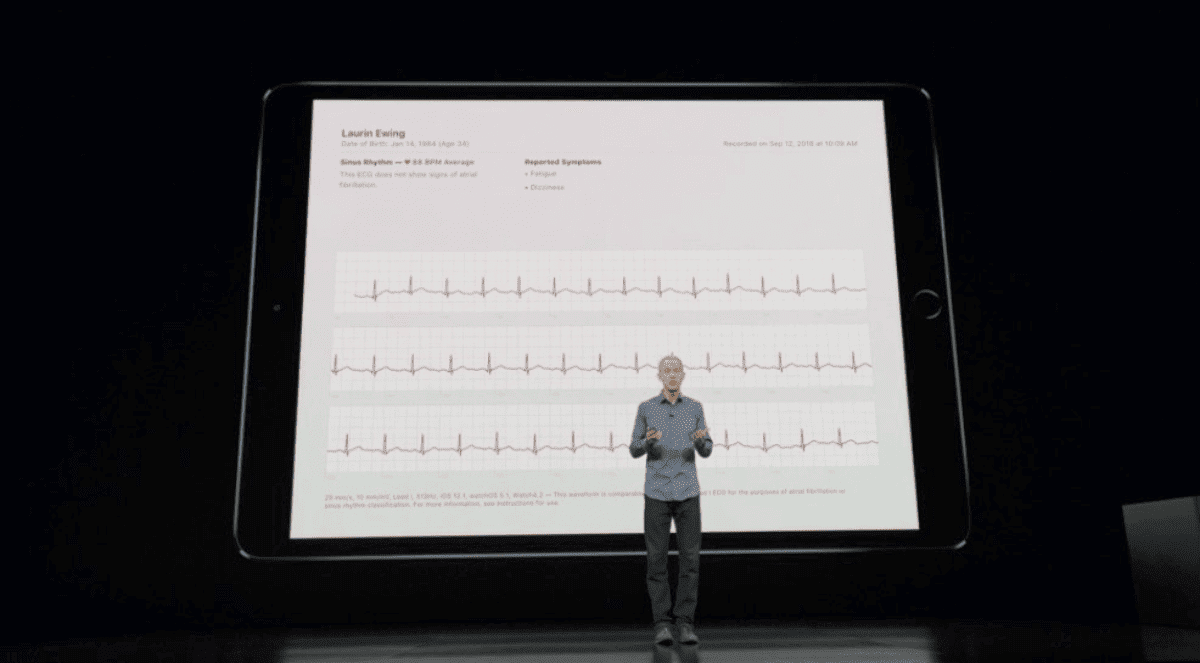The Apple Watch Series 4, besides being an improved model, is also the world’s first over the counter electrocardiogram, and it’s FDA approved.
[Apple Announces Apple Watch Series 4 with Bigger Display, New Watch Faces]
ECG
An electrocardiogram, or ECG, is a chart of your heartbeat. The new sensor measures and records the electrical activity of your heart over time. Since it has been approved by the Food and Drug Administration, it means Apple can legally call the Apple Watch Series 4 a medical device.

It monitors your heart rate using green LEDs on the bottom sensor. It reflects on your skin to detect your pulse and changes in blood volume. This is turned into the heart rate number you see on the device.
To produce an ECG, all you have to do is press your finger against the digital crown. The watch passes an electrical current across your chest to track electrical signals in your heart.
This is more accurate than using a pulse. It takes 30 seconds and you’ll see a heart rhythm classification. The data is stored in Apple’s Health app and you can send a PDF version of your ECG to your doctor.
I think that the EKG function is a little different than you described. The description at the event was that the lead captured was lead 1 which uses the left arm as the positive sensor and the right arm as the negative. The watch would use the electrical current generated by the heart to form the the image of a QRS complex. The watch itself would be passive, not sending an electrical current but just receiving the heart’s own electrical impulses. Touching the right finger to the crown creates the pathway for detecting Lead 1. It should be possible to obtain other leads like, say 2 & 3 by putting the watch on your left ankle and touching the crown with fingers from your right and left hand respectively.
People who wear their watch on their right wrist will have a problem. This would probably result in Lead AVR which is not terribly useful compared to Lead 1.
Is it a durable medical device? If so then maybe I can get one paid for by Medicare 😀
Haha. Good luck with our wonderful Medicare system. However……. I’d like one too 😀
A number of years go my wife lost her hearing. Medicare doesn’t cover hearing aids, but it does cover the more expensive cochlear implant because it is a “durable medical device”.